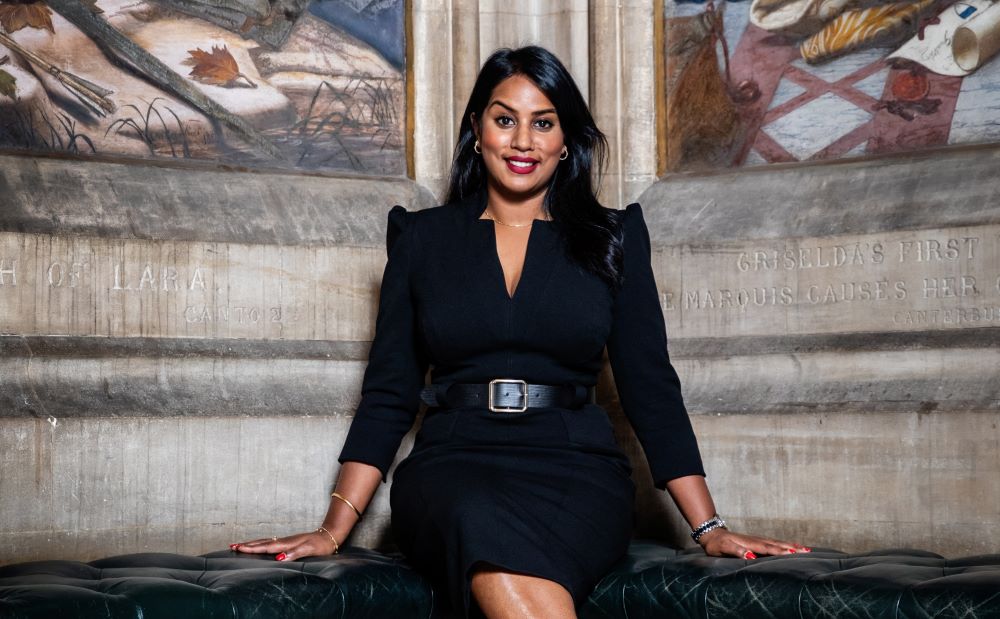Boost BBC World Service Funding To Help Ukraine Fight Russia, Says Labour MP
3 min read
A Labour MP is leading calls for the BBC World Service to be given a funding boost, arguing that it has helped Ukraine fight Russia by combatting disinformation.
Uma Kumaran, the newly-elected Labour MP for Stratford and Bow and member of the Foreign Affairs Committee said the service — which the BBC estimates reaches 320m people a week worldwide on average — should be championed more as a source of “impartial” and “trusted” news in war-torn countries.
The Labour MP told PoliticsHome that the BBC World Service had helped fight Russian “misinformation and disinformation” in countries such as Moldova, where bad actors were using money to “skew” election results.
Kumaran met a delegation of Moldovan MPs in November who told their British counterparts about their experience of living in a nation that borders Ukraine.
She said the World Service funds a "huge part" of the Moldovan national news network, "to put information out there, to spread news of their culture, of the things they do".
“People love the particular programs that it produces," Kumaran said.
"They love that it's a trusted source of information.
"But then I asked them [visiting MPs], ‘do people know that that's actually the BBC World Service doing it?’ and they said, 'probably not'.
“Here’s this massive thing we're doing, helping out with the war effort in Ukraine, helping Moldovans feel more at ease with what's going on, helping our partners and other governments. But no one here knows about it.”
Kumaran criticised “unprecedented” cuts to the BBC World Service over the last 14 years under Conservative-led governments.
The corporation faced further financial pressure when the previous Tory administration said it would freeze the BBC license fee for two years between April 2022-2024.
Chancellor Rachel Reeves set out an "increase in funding" for the World Service to ensure it can continue its language services in the November Budget.
Kumaran said she was “really pleased” about the extra funding the corporation had received but argued there was scope for more investment in its international coverage.
 BBC World Service funding is "still at very, very low levels", says Labour MP Uma Kumaran
BBC World Service funding is "still at very, very low levels", says Labour MP Uma Kumaran
“I’m really pleased in this year’s Budget, the Chancellor after receiving representations from the Foreign Office, the BBC themselves, and lots of others at the Department for Culture, Media and Sport, has put a good whack of funding into the BBC.
“But it’s still at very, very low levels,” she said.
“It’s not just about money. You look at it in monetary terms, and you see a couple of million going into BBC World Service, you think 'actually, that’s quite a lot of money'.
"But the soft power and the diplomatic power, and our place in the world, you cannot put a number on.”
Kumaran said channels such as Russia Today, SputnikTV and Chinese state media had filled the vacuum left by the BBC’s decision to reduce or shut down its reporting in towns and cities located in war-torn countries.
“We [the foreign affairs committee] uncovered that in every place where BBC World Service radio has been shut, it's either Russia Today, Sputnik or Chinese state media, have been spending between $6-8bn on putting money into these services,” she said.
“The starkest [example] I can give you is radio BBC Arabia, which covers the length and depth of the Middle East, including vital radio services in Gaza.
“It's a different world. Handheld radios are a thing. Car radios are much more of a thing. Digitisation hasn't yet hit and so they absolutely rely on this service.”
